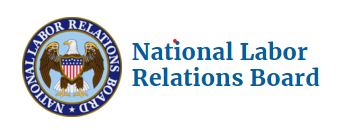On May 30, National Labor Relations Board (NLRB) General Counsel Jennifer Abruzzo sent a memo to all Regional Directors, Officers-in-Charge, and Resident Officers, deeming that the act of extending, maintaining, and enforcing of non-compete provisions in employment contracts and severance agreements seemingly violates the National Labor Relations Act (NLRA) except in limited circumstances.
NLRB General Counsel Abruzzo’s theory is that noncompete provisions in employment contracts limit employees’ job opportunities, and thus chill employees:
- “From concertedly threatening” to quit their current job—or actually quitting—to demand better working conditions;
- “From concertedly seeking or accepting employment with a local competitor to obtain better working conditions”;
- “From soliciting their co-workers to go work for a local competitor as part of a broader course of protected concerted activity”; and
- “From seeking employment, at least in part, to specifically engage in protected activity with other workers at an employer’s workplace” (such as organizing a union at another employer’s workplace).
However, the memo briefly explained that in some cases, noncompete agreements could be lawful if the provisions clearly restrict only individuals’ managerial or ownership interests in a competing business or true independent-contractor relationships.
The memo reaffirms NLRB commitment to an interagency approach to addressing employer restrictions on the exercise of employee rights, including limits to workers’ job mobility, including information sharing and referrals to other agencies. In 2022, the NLRB entered into memoranda of understanding with the Federal Trade Commission (FTC) and the Department of Justice’s Antitrust Division, both of which have addressed the anticompetitive effects of non-compete agreements.
Worth noting, the FTC has issued its own proposed rule to ban noncompete agreements, and Congress has introduced the Workforce Mobility Act ( S.220 / H.R 731) in February 2023.
The NLRB must adopt General Counsel Abruzzo’s legal justification in her memo in order for this to become Board policy.
Some states require, and some businesses voluntarily offer, additional compensation or other considerations (including equity interests) in connection with entering into restrictive covenant agreements. The general counsel’s memorandum does not address this issue. It also does not mention anything about client non-solicitation agreements.




